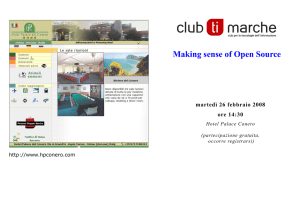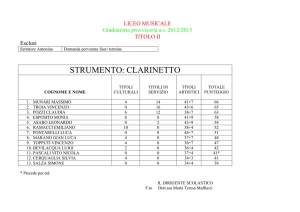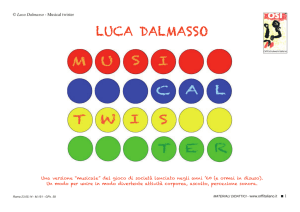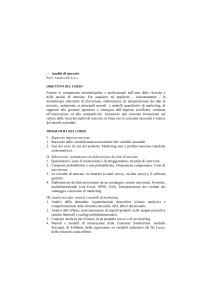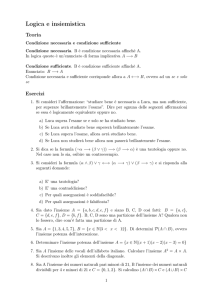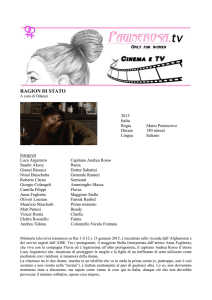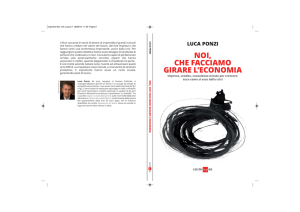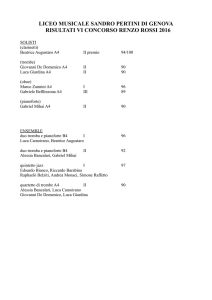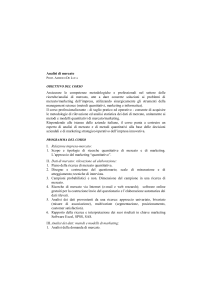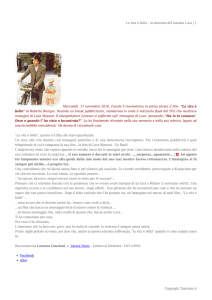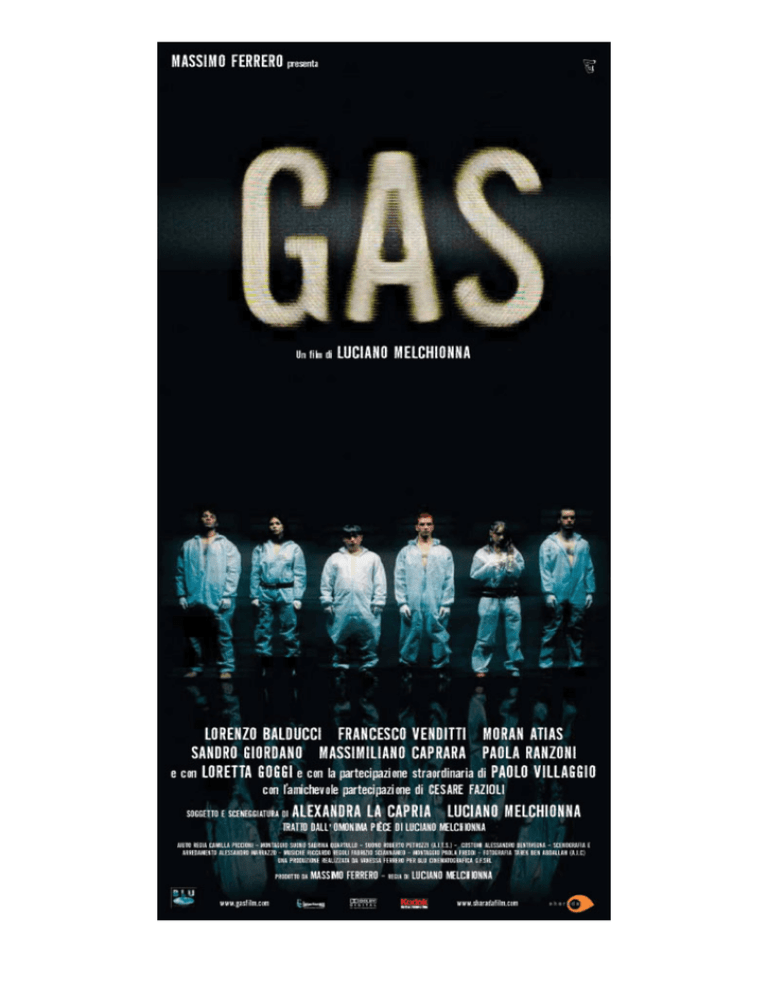
GAS
screenplay by Alexandra La Capria and Luciano Melchionna
from the homonym play by Luciano Melchionna
Directed by Luciano Melchionna
CAST & CHARACTERS
LORENZO BALDUCCI
as Luca
FRANCESCO VENDITTI
as Francesco
MORAN ATIAS
as Monica
SANDRO GIORDANO
as Sandro
MASSIMILIANO CAPRARA
as Emiliano
PAOLA RANZONI
as Laura
LORETTA GOGGI
as Anna, Luca’s mother
NINO BERNARDINI
as Vittorio, Luca’s father
ALEXANDRA LA CAPRIA
as Ludovica
GIORGIO SANTANGELO
as Riccardo
TECLA SILVESTRINI
as Speranza
and special starring
PAOLO VILLAGGIO
as Renato
TRAMA breve
Luca, ventiquattro anni, una vita priva di entusiasmi e passioni, una insoddisfazione profonda
dovuta anche ad un rapporto convenzionale con una ragazza più grande di lui, Ludovica, e ad
un ambiente familiare opprimente. L'unica via di uscita per lui sembra essere l'inaspettata
conoscenza di Riccardo, fratello maggiore di Ludovica, che aiuta Luca a contattare la sua vera
identità. La storia di Luca si intreccia con quella di un gruppo di coetanei: Francesco, giovane
padre separato dalla moglie; Emiliano, inserviente all’obitorio; Sandro, figlio di un famoso
personaggio televisivo; Monica, mantenuta da un amico del padre in un appartamento ricco e
vuoto; Laura, alle prese con una sorellina piccola e una madre insoddisfatta ed egoista.
SINOSSI LUNGA:
Luca, ventiquattro anni, all’interno di un edificio abbandonato, osserva le mura fatiscenti sulle
quali, in alto, si aprono poche finestre. Sul naso ha una ferita fresca.
Nello stesso edificio, risistemato, Francesco, Emiliano, Sandro, Monica e Laura, tutti tra i 20 e i
30 anni, si divertono a spaventare un uomo sequestrato nella notte. Con loro c’è anche Luca.
La sua ferita comincia a cicatrizzare.
Luca vive a Latina, città di provincia, e fa le consegne a domicilio per un supermercato. Con il
furgone ci porta in giro per la città. Vive con i genitori, un pedante padre in pensione e una
madre dedita completamente alla famiglia. Francesco ha già un figlio e la domenica lo porta al
mare. Emiliano lavora all’obitorio. Sandro è figlio di un personaggio televisivo famoso ma, da
quando il padre se n’è andato, vive con la madre frustrata e insoddisfatta. Monica trascorre le
giornate davanti al televisore in una casa lussuosa dove un amico del padre la mantiene. Laura
abita in una casa popolare, con una madre troppo giovane, un padre operaio sempre a lavoro e
una sorella piccola di cui lei stessa si occupa.
Luca trascina un rapporto convenzionale con Ludovica, più grande di lui, seria e di buona
famiglia. Riccardo, trent’anni, fratello di Ludovica, vitale ed intraprendente, torna dopo anni di
studio trascorsi lontano dalla provincia e conosce Luca con il quale in breve tempo instaura una
forte intesa emotiva ed intellettuale che porta Luca a contattarsi per la prima volta e lasciare
Ludovica. Le emozioni e le energie di Luca, con sua grande sorpresa, cominciano a fluire finché
una sera litiga con Riccardo, nega la propria omosessualità e se ne va sbattendo la porta.
Francesco, sulla strada per il mare, investe un cane e non esita, in preda ai sensi di colpa, ad
abbandonare la famiglia sul ciglio della strada per correre a cercare un veterinario, senza
peraltro riuscirci. Emiliano dopo una giornata di lavoro con un anziano infermiere petulante
torna a casa e si mette a letto accanto alla vecchia nonna. Sandro festeggia il proprio
compleanno tra gli isterismi della madre in attesa dell’ex marito che non arriverà. Monica litiga
con la vecchia vicina del piano di sopra che la disturba con i suoi zoccoli per poi ritrovarsi a
parlare della propria vita. Laura, sola a casa con la sorellina, si sdraia sul letto della mamma,
alla ricerca di un piacere che si trasforma presto in un pianto incontenibile.
Luca, in giro per la città, incontra Francesco, Emiliano, Sandro, Monica e Laura ma non sembra
ricordare dove e come si siano già conosciuti. Quella stessa notte, si unisce al gruppo e viene
coinvolto nel tentativo di pestaggio a spese di un uomo di cinquant’anni, dal fisico appesantito,
adescato da una delle ragazze del gruppo davanti ad un sex shop. Luca propone di portarlo
nell’edificio abbandonato dove ormai vive da solo. Qui il gruppetto comincia a giocare con la
preda e a bere enormi quantità di alcool che Luca continua ad offrire.
Verso l’alba, quando tutti ormai sono ubriachi, sfatti ed addormentati, Luca trascina fuori e
mette in salvo l’uomo sequestrato, richiudendo velocemente a chiave il cancello. Poi aspetta
che gli altri si sveglino e finalmente si rivela raccontando…
Vediamo Riccardo rincorrere Luca per strada, dopo la lite, per fare pace. Improvvisamente
l’assalto. Riconosciamo Francesco, Emiliano, Sandro, Monica e Laura scendere dalla macchina e
picchiare Riccardo. Luca riesce a fuggire e a nascondersi. Riccardo muore sotto gli occhi di
Luca e con lui muore la speranza di un riscatto da quella paralisi affettiva e sociale in cui Luca
è cresciuto.
Alla fine del racconto, nell’edificio, il terrore si dipinge sul volto dei cinque ragazzi. Hanno
capito di essere caduti in trappola. Sono chiusi dentro a chiave, le finestre sono troppo in alto.
L’aria è viziata e puzzolente e Sandro riconosce quell’odore proprio mentre Luca tira fuori dalla
tasca un accendino: l’ambiente è saturo del GAS che si è diffuso da quando, appena arrivati,
Luca ha staccato il tubo in cucina. È inutile disperarsi e supplicare. Come lo è stato per
Riccardo. Ora, Luca non ha più niente da perdere.
PLOT
Constructed like a thriller, Gas takes the viewer into a world that is cruel yet at same time both
touching and poetic. From unstable backgrounds, six young people, between twenty and
thirty, bonded through their common feelings of disenchantment, are veritable time-bombs,
and we see them gradually sink into a moral quagmire. They select a victim and take him into
an abandoned building to vent their confused feelings on him through a series of sadistic
games. Luca, however is different and he joined the group only recently with a very special
purpose: revenge. But why and on whom ......
SINOPSYS
Luca, 24 years old, is inside an abandoned building. He’s watching the damaged walls where,
on the top, there are a couple of windows. A fresh wound on his nose.
Same building, restored. Francesco, Emiliano, Sandro, Monica and Laura, everybody from 20
to 30 years old, enjoying to scare a man kidnapped in the night. With them there’s Luca too.
His wound is starting to heal.
Luca lives in Latina, province town, and he does home delivery for a supermarket. With the
van he brings us around the city. He lives with his parents, a pedantic retired father and a
mother totally dedicated to the family care. Francesco has a son and on sundays he brings him
and the family to the beach. Emiliano works in a morgue. Sandro is the son of a famous
television personality but, since his father left him, he's been living with his frustrate and
unsatisfied mother. Monica spends her days in front of the television in a luxury house
financed by one of her father’s friends. Laura lives in a working-class house with a mother who
is too young, an over-worked father and a younger sister whom she looks after.
Luca drags a conventional relationship with Ludovica, who's older then him, a serious girl with
a rich family background. Riccardo, 30 years old, is Ludovica’s brother, full of life and
enterprising. He comes back after many years spent far from province to study. He meets Luca
and, in a brief amount of time, they establish a strong sensitive and intellectual feeling that
convince Luca to contact himself for the first time and to break off the relationship with
Ludovica. Luca’s emotions and energies, surprise himself, starting to fly until a night when he
quarrels with Riccardo, he refuses his own homosexuality and he storms out slamming the
door.
Francesco, on the way to the beach, runs over a dog and he doesn't hesitate, killed by his
guilt, to abandon the family on the edge of the street to run looking for a veterinary, without
success. Emiliano comes back home, after a day working with an elderly annoying nurse and
he beds down next to his old grandmother. Sandro celebrates his birthday with his hysterical
mother. She’s waiting her ex-husband who will not arrive. Monica quarrels with her old up floor
neighbour that bothers her with her noisy clogs. Sooner Monica will find herself speaking about
her life. Laura, alone in her home with the younger sister, lays herself on her mother’s bed to
search a pleasure that soon turns into an outburst of tears.
Luca, walking around the city, meets Francesco, Emiliano, Sandro, Monica and Laura but he
doesn’t remember where and how they already met. That night he joins the group and he’s
involved in the aggression attempt of a 50 years old man, physically fat, roped in by one of the
girls in front of a sex shop. Luca suggests bringing him in the abandoned building where he
lives, at the moment, alone. Here the group starts to play with the prey and drinks enormous
amounts of alcohol offered by Luca.
Around sunrise, when everybody is drunk, down and asleep, Luca drags out and releases the
kidnapped man and he locks up the gate quickly. Then he waits the wake up of the group and
finally he discovers himself telling….
We see Riccardo running towards Luca in the street, after the quarrel, to makes peace.
Suddenly the attack. We recognize Francesco, Emiliano, Sandro, Monica and Laura getting out
of the car and beat Riccardo. Luca succeeds to flee and hides himself. Riccardo dies in front of
Luca and with him dies also the hope of a ransom from that affection and social paralysis
where Luca is grow up.
At the end of the story, in the building, the terror is painting on the five guys faces. They
understand that they fell in a trap. They are locked up, the windows are too far on the top. The
air is full with an evil-smelling and Sandro recognizes the smell while Luca takes out from his
pocket a lighter: the environment is saturated by the gas widespread by Luca when, just
arrived, he removed the tube in the kitchen. It’s useless to despair and beg. The same way it
was useless for Riccardo. Now, Luca, has got nothing to loose.
Il regista
Attore diplomatosi all’Accademia Nazionale d’Arte Drammatica Silvio d’Amico di Roma nel
1989, Luciano Melchionna è anche autore e regista. La sua prima pièce teatrale, Rimozione
forzata, segna l’inizio di un’importante carriera teatrale. Scrive e mette in scena Non
camminare sclaza, che si aggiudica il Premio del Pubblico per la scrittura al Festival Corti
Teatrali presso il Teatro Vittoria di Roma nel 1997, e Gas, premiato dal pubblico nell’edizione
successiva dello stesso festival per la regia, nonché vincitore del Premio Giovani Protagonisti al
Premio riviera d’Ulisse, nell’ambito del Festival del Teatro Italiano. In collaborazione con
Alessandra La Capria, Melchionna realizza un adattamento cinematografico di Gas. «L’idea del
film è nata una sera a Campo dei Fiori. Al tavolo accanto al mio c’erano una decina di giovani
urlanti, che si divertivano a farsi cadere togliendosi reciprocamente le sedie da sotto il sedere…
Sbattevano contro il nostro tavolo […]. Allora ho pensato a questo mio lato d’ombra, al lato
d’ombra che abbiamo tutti, e che con Alessandra abbiamo cercato di far emergere nel film.
Non è un film sulla violenza, ma un film contro la violenza…» Con Gas, il giovane regista firma
il suo esordio al cinema. Tuttavia, la sua carriera rimane prevalentemente teatrale. Mette in
scena numerose pièce, tra cui Caldo come il ghiaccio, Ce n’è x tutti di Luca De Bei, L’equilibrio
di Botho Strauss, Falso doppio di Lewis Theobald, Sottovuoto di Sabrina Scucciamarra,
Valoroso amore di Luigi Ferraro e Senzatesta di Alessandra La Capria. Gli attori di Gas, tra cui
Giorgio Santangelo, Massimiliano Caprara, Paola Ranzoni e Francesco Venditti, provengono
tutti dal teatro. Tra le diverse attività svolte, Melchionna è stato anche aiuto regista per il
telefilm Il Papa buono di Ricky Tognazzi, e insegnante di recitazione presso la Scuola delle Arti
di Pino Quartullo.
The director
An actor who trained at the Silvio d’Amico National Drama School in Rome in 1989, Luciano
Melchionna is also a writer and stage director. His first theatre play, Rimozione Forzata
signalled the debut of a significant dramatic career. He wrote and directed Non camminare
scalza which won the audience prize for writing at the Corti Teatrali festival at the Teatro
Vittoria in Rome in 1997 and Gas,which, at the next edition of the same festival, won the
audience prize for direction, and the Giovani Protagonisti prize at the Premio Riviera d’Ulisse,
at the Festival of Italian Theatre. In collaboration with Alessandra La Capria, Luciano
Melchionna directed a screen adaptation of Gas. «The idea of the film came about one evening
at the Campo dei Fiori in Rome. At the table next to me there were a dozen yelling youngsters
who were having fun removing each other’s chairs so they’d fall when they sat down …they
knocked against our table […] It made me think about that dark zone inside me, that is inside
all of us, and that’s what Alessandra and I sought to bring out in this film. It isn’t a film about
violence but a film against violence…» And thus the young director made his first film. But his
career continues to be closely linked to theatre. He has staged numerous plays, including
Caldo come il ghiacco, and Ce n’è x tutti, by Luca De Bei, Botho Strauss’ L’equilibrio, Lewis
Theobald’s Falso doppio, Sabrina Scuccimarra’s Sottovuoto, Luigi Ferraro’s Valoroso amore and
Alessandra La Capria’s Senzatesta. The actors in Gas, Giorgio Santangelo, Massimiliano
Caprara, Paola Ranzoni and Francesco Venditti also come from a theatrical background.
Amongst his highly diversified range of activities, Luciano Melchionna has also worked as an
assistant director on Ricky Tognazzi’s TV film Il Papa buono and teaches comedy at the Scuola
delle Arti de Pino Quartullo.


